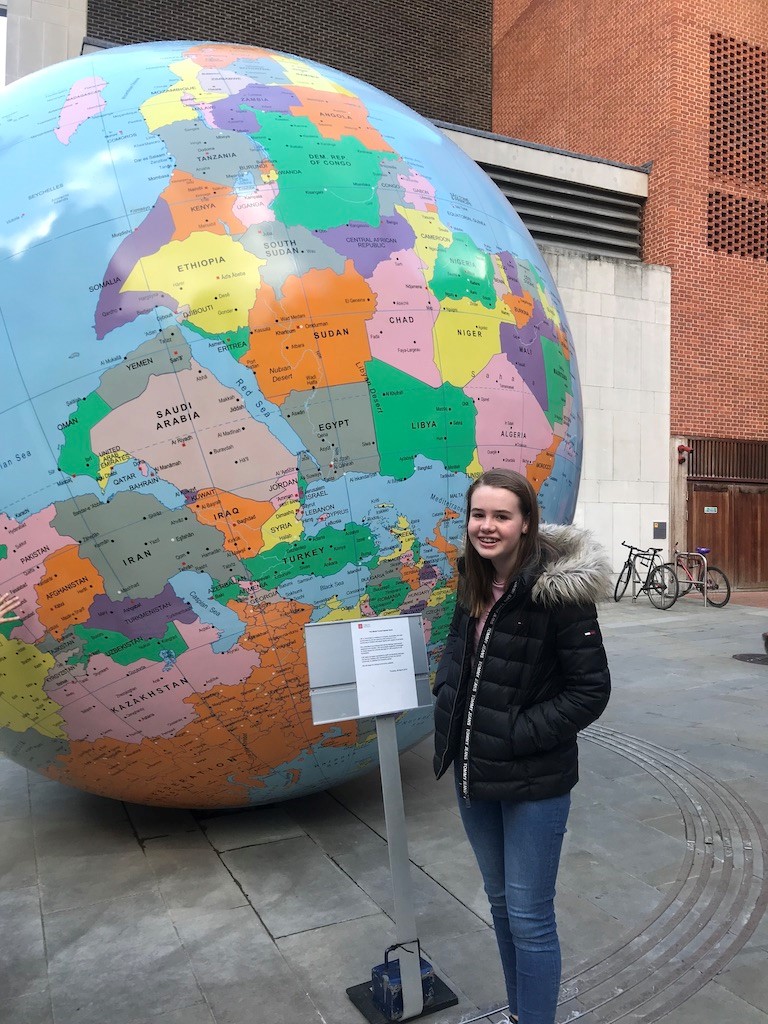My favourite thing about studying Economics is that you actually get to see it in action in real life not just under a microscope or in a textbook. Economics is everywhere around us and shapes a big part of our lives yet few know it. By studying the most relevant subject there is to study, not only do you see this happen but you can explain it, as well helping you develop and shape your views becoming a more well-rounded person.
At the start of Year 12 I wish I had known how broad the subject was. Like many at the beginning I thought it was just supply and demand, but it is so much more and can link into virtually most other subjects in some way not just Business and Maths. For example, behavioural economics links with psychology and sociology. Economics can provide a pathway to a range of careers not just a stereotype banker.
The maths element of the course is scary at first but is actually quite manageable as this type of maths has real life context and actually helps you understand the topics better. I was worried about this as I only achieved a 6 in maths at GCSE and didn’t do it at A level but I managed fine.
I studied Business Studies and Politics as well as Economics A Level. Together these subjects link very well together which is what I wanted as it has helped my revision as some topics overlap but you also learn it from a different viewpoint. This is very useful for providing balanced views in my essays.
I intend to continue studying Economics at the University of East Anglia after Sixth Form. Whilst A Level Economics isn’t a requirement, it is a big aid as the first year at uni covers the 2 years at A Level so it is a good recap. The biggest help though is deciding what type of Economics interests me the most as this will help me decide what to specialise my degree in the 2nd and 3rd years.

My favourite thing about studying Economics is the subject’s engagement of current world affairs. Pretty much everything that I have studied in the A-Level course has had some kind of application to the world around me, for example when looking at interventionist supply-side policies we can look at HS2. Being able to apply the theory to the real world definitely helps me with retaining the content for the exams but most importantly makes it a fascinating subject to study. Now is such an interesting time to study the subject, especially with regards to the economic and political uncertainty we are facing. Studying Economics definitely helps you to understand the bigger picture.
Economics was a new subject for me in Year 12, as it was for almost everyone in my class. I think I expected a lot more Maths, but the reality is, Economics is an essay-based subject. If you are unsure about what studying Economics is going to be like I would recommend looking on the AQA website and looking at the specification and assessment material so you can get a feel for the subject. Also, there is a range of different textbooks and revision guides you can purchase, I would hold back from buying these books. In class we didn’t rely on any textbook for teaching, but the department has a range of books you can look through before buying any. In hindsight I would have borrowed a book or even photocopied some pages to see if the book worked well for me before buying. Personally, I found after using a few books they weren’t the best for me, instead the free online resources on Tutor2u, Economics Help and Physics and Maths Tutor were of most use to me. Also, I couldn’t recommend enough watching YouTube videos to help you grasp concepts you are struggling with, personal favourites of mine were EconplusDal and Jacob Clifford.
The jump from GCSE to A Level is a lot bigger than one might think, you might be thinking that going from doing 10+ subjects to only 3 is going to be easy. Unfortunately, it’s not that simple, your workload will increase, and you are required to do a lot more independent work, hence all the free periods you’ll find on your timetable. Don’t be mistaken, these free periods aren’t just for quick trips to the shop or social gatherings, they are to help you get the work done. I found it helpful to allocate myself a task to each free period for the day the night before. This helped me keep on top of my workload and the work I set myself didn’t always take the full hour, so I was still able to spend time with my friends. I’d also recommend sitting away from your friends when getting work done – it’s way too easy to get dragged into conversation! But remember A Levels aren’t just all work and no play, over the next 2 years you will create some amazing memories. It’s important to reward all of your effort and know your limits, because your mental and physical health should be your number one priority.
Alongside Economics, I also studied History and Maths, which some people think is an odd combination, but for me it worked really well. My History studies have improved my critical thinking and evaluative skills, skills which are vital in any Economics essay. I also found that my understanding of economic theory was very helpful when covering the history content as there were aspects of the History course which required some understanding of economic concepts; for example, in the British section of the course we looked at the issue of protectionism. Already having a relatively in depth understanding of the concept was very helpful in developing my essay points.
Whilst Maths was challenging, it was very rewarding and has enhanced my problem-solving ability. Studying Maths at A Level isn’t required to study Economics at A-Level, however if studying Economics at university is something which you may be thinking of doing, Maths definitely keeps your options open as most BSc Economics courses require you to have an A-Level in Maths.
After Sixth Form I am hoping to go to the University of Manchester to study BSc Economics. I am looking forward to further developing my understanding of the subject, and my A Level studies of Economics will give me solid foundations for going forward.

Recent Comments